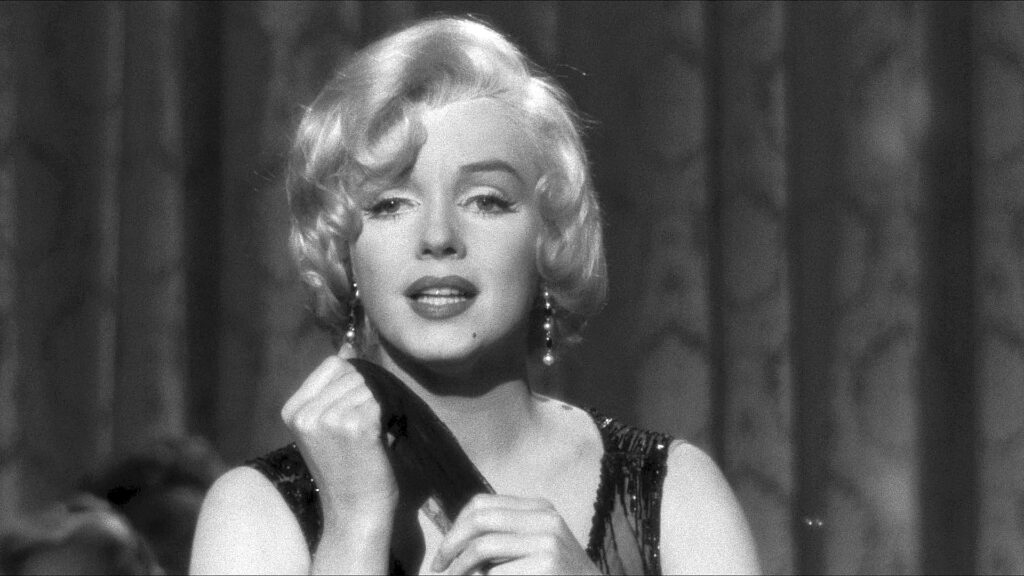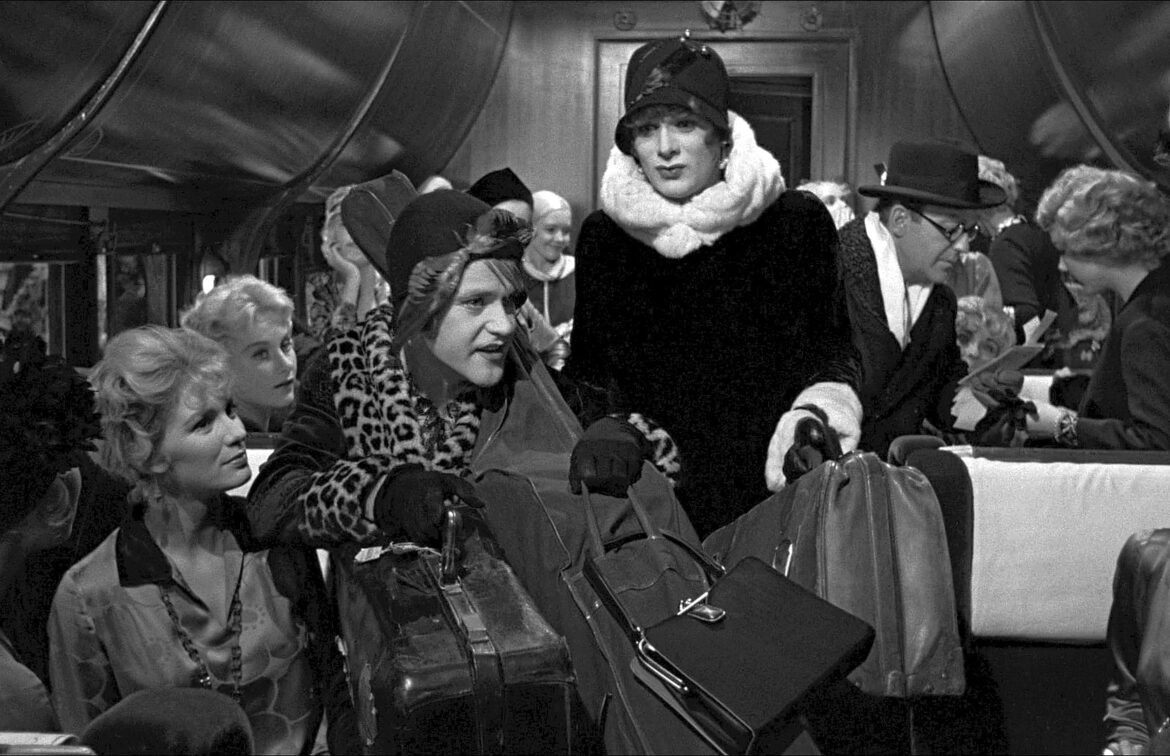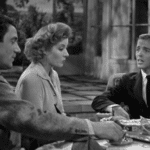‘Some Like It Hot’ begins with two down on their luck musicians, Joe (Tony Curtis) and Jerry (Jack Lemon), who thanks to their quick thinking, narrowly avoid a raid on the mob owned speakeasy they play at. They then spend their last remaining money on a bet gone bad, and so they look for a job at an agency when they are told by a secretary two jobs open in Florida for exactly their instruments. They find out though its actually a girls band, and they are only looking for women musicians and its all a joke played at their expense by the secretary. They then leave but inadvertently stumble upon a mob killing on a bunch of fellow mobsters who are believed to have ratted out their compatriots by giving up the speakeasy to the police. Joe and Jerry attempt to sneak away but their faces are seen, and though fortunately they narrowly escape again they are now on the run. Together they then decide to dress as women to take the gig for safety. Now they have to hide their identity, while also working to hide their attraction for Sugar (Marilyn Monroe), a bit of a rebel herself in the band who befriends the pair.
Of the many films I’m catching up on in the Sight and Sound list, this film perhaps more than any other I was concerned would have aged incredibly poorly with the gender dynamics, the sexism of the era, and the humor. Though it certainly has its faults, and Sugar’s portrayal definitely underserves the film and Monroe as an actress, there’s still a lot of charm and laughter to be found in this film.
Most of the film is centered on the two men, played by two legends of the era Tony Curtis and Jack Lemmon. Right off the bat I though their rapport was clearly a large reason for the films success, as it seemed natural and provided many of the laughs in the film. In fact, I much prefer the sequences when they are together than when apart, as their bantering back and forth, each suggesting a worse scheme, shows both why they are together as a pair, and also why they are, and likely will always, be perpetually down on their luck. Many of my favorite laugh lines happen in the first third of the film, well before Monroe’s appearance, as they deal with the initial run from the mafia. Likewise in the final act, where Monroe again is largely sidelined, we see the two again working together, and this once more has been incredible sequences as they must make difficult decisions about their identities.

Marilyn Monroe in ‘Some Like It Hot’
Once Joe and Jerry have to don their alter-egos to join the band, Lemmon’s character is fleshed out to be more of a cad, which doesn’t feel like an unearned pivot so much as one that I found started to suck the humor out of his scenes. Fortunately his character actually has the greatest growth in the film, and perhaps its for this reason why they wanted to make him more of a horndog character to start. Curtis’s character Joe on the other hand certainly is not ignorant of his attraction to Monroe’s character at the start, and has the greater arc with her; however, his character plays as a straight man by comparison and thus is more palatable through the film.
To reiterate, Monroe herself is undeserved by the part of Sugar, who is a character that is little more than a prize for one of the men to win. Especially after seeing her brief role in ‘All About Eve’, where Monroe showed her excellence as an actress, it was easy to tell this role wasn’t a challenge for her to portray as she simply had to play the part so many men in particular probably already wanted her to play in real life – vapid, ditzy, naive, and beautiful – and though she was beautiful, she was far brighter than ever given credit, at least in her lifetime. This will always be a film she is remembered for though, for better or worse.
‘Some Like It Hot’ does feel a bit predictable all these years later; however, the chemistry of the two leading men helps ensure when the film sings it sings well. Whether that is enough to earn a spot in such a lauded list, with many comedies in the years following that in my mind are sharper, and funnier, but so-often overlooked, will be a judgement for future generations.









